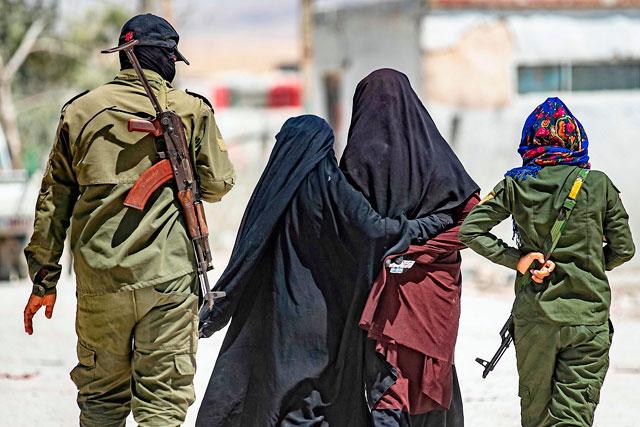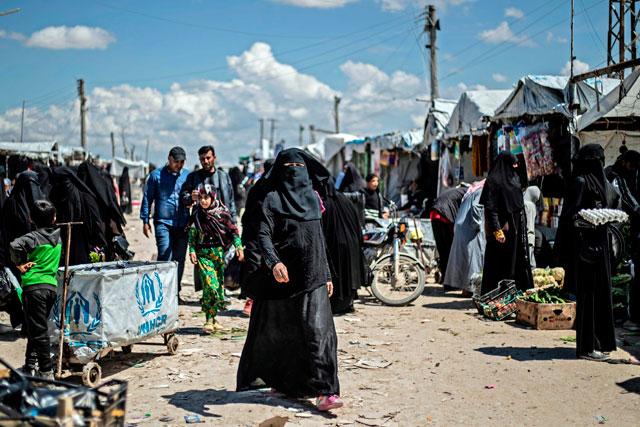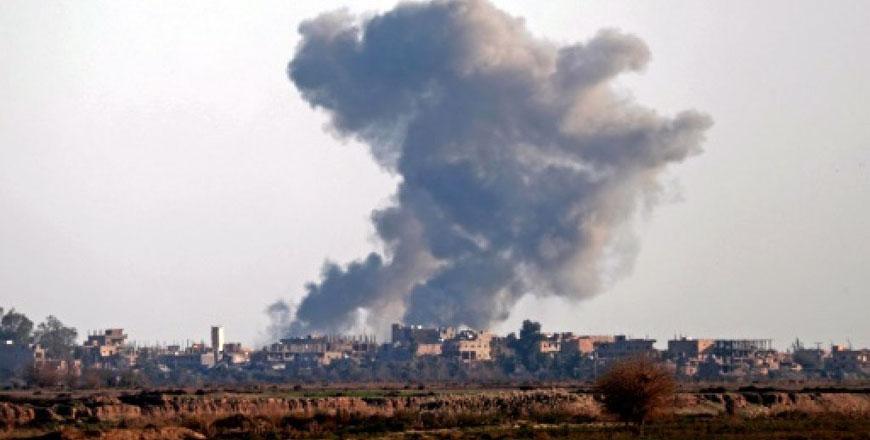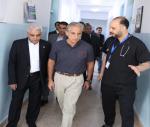You are here
Three months on, landless Daesh still a threat in Syria
By AFP - Jun 25,2019 - Last updated at Jun 25,2019
BEIRUT — The Daesh terror group may have lost its "caliphate", but three months later, experts have warned the extremists are still attacking fighters and fields in Syria to show they remain relevant.
The Syrian Democratic Forces (SDF) announced they had expelled the extremists from their last patch of land in eastern Syria on March 23, after a months-long campaign backed by air strikes of a US-led coalition.
The Kurdish-Arab alliance taking control of the riverside village of Baghouz spelt the end of the extremists proto-state declared in 2014 in large parts of Syria and neighbouring Iraq.
But even as the Kurdish-led force fights to quash sleeper cells in northeast Syria, Daesh continues to claim regular attacks there and in other parts of the war-torn country.
"Daesh has never stopped being a threat in northern and eastern Syria," says Syria expert Nicholas Heras, using an alternative acronym for Daesh.
Over the past three months, they have claimed regular attacks in SDF-held areas, including targeted killings and setting fire to vital wheat crops.
The deadliest include a car bombing on June 1 that took the lives of 10 civilians and seven SDF fighters in the northern city of Raqqa, the Syrian Observatory for Human Rights says.
On April 9, another suicide blast killed 13 people, mostly civilians, also in the group's former de-facto Syrian capital.
'Hearts and minds'
"Daesh is locked in a tug-of-war with the United States and the SDF to win the hearts and minds of the local Arab population," the analyst at the Centre for a New American Security said.
The SDF is led by Kurdish fighters, but areas recently taken from Daesh in eastern Syria are largely Arab-majority.
Both the Damascus regime and the SDF are competing for the favour of these tribes in the oil-rich Deir Ezzor province.
Tactics such as crop burning and assassinations are making it difficult for the SDF to build new order, and help persuade residents that no viable alternative to Daesh exists, Heras said.
Elsewhere in the country, the extremists also continue to be a headache.
In Syria's vast desert, they continue to hit regime forces with deadly attacks and ambushes, years into a Russia-backed campaign to eliminate them.
The Britain-based observatory says more than 150 loyalist fighters have been killed since March 24, the latest four on Sunday.
Even in the northwestern anti-government stronghold of Idlib, the extremists are present.
Online, Daesh loyalists have revved up their propaganda machine to big up alleged feats in other parts of the world.
"What matters the most now is to convince people that they're here to stay," Syrian analyst Hassan Hassan said.
They want to persuade "potential recruits that they have a long term project that goes beyond holding territory".
Suicide bombings in Sri Lanka that killed 258 people on April 21, and elusive Daesh supremo Abu Bakr Al Baghdadi's first appearance in five years in video footage posted on April 29, likely did just this.
'Include locals'
The US-led coalition has said it is backing the SDF in northeast Syria to quash thousands of remaining loyalists.
"The so-called physical caliphate is defeated, but Daesh as an organisation is not," coalition spokesman James Rawlinson said.
Last week, the SDF detained several Daesh loyalists in two operations in Deir Ezzor and the northeastern province of Hasakeh, it has said.
In areas now under SDF control, US-backed forces are also helping to clear landmines, Rawlinson said.
And they are working to set up military councils "to assume all security functions for their communities, provide stability, and work toward normalcy", he told AFP.
Last week, the SDF announced the formation of such a council in Raqqa.
"These local and regional initiatives are important to ensuring the enduring defeat of Daesh," Rawlinson said.
Hassan warned the coalition and its Kurdish-led allies should act fast while Daesh is still "on the run and defeated".
"The fear is that, as time goes by, Daesh will be able to reorganise itself and then the coalition will lose that window of opportunity where they can make a big difference," he said.
Including members of local Arab communities with real influence in decision-making was key, Hassan said.
"Locals have to be included in the process, in security and in politics, and running their own areas without feeling they are governed by out-of-towners," he said.
Related Articles
BEIRUT — A US-led coalition air strike killed five extremists in eastern Syria on Monday, a spokesman said, in the first such raid since the
BEIRUT — Sleeper cells, prisons teeming with militants, camps crammed with their wives and children — perils abound in Syria, nearly a
HAJIN, Syria — Burnt-out cars, craters and collapsed buildings dot the side of a road in the Syrian village of Hajin, after US-bac



















